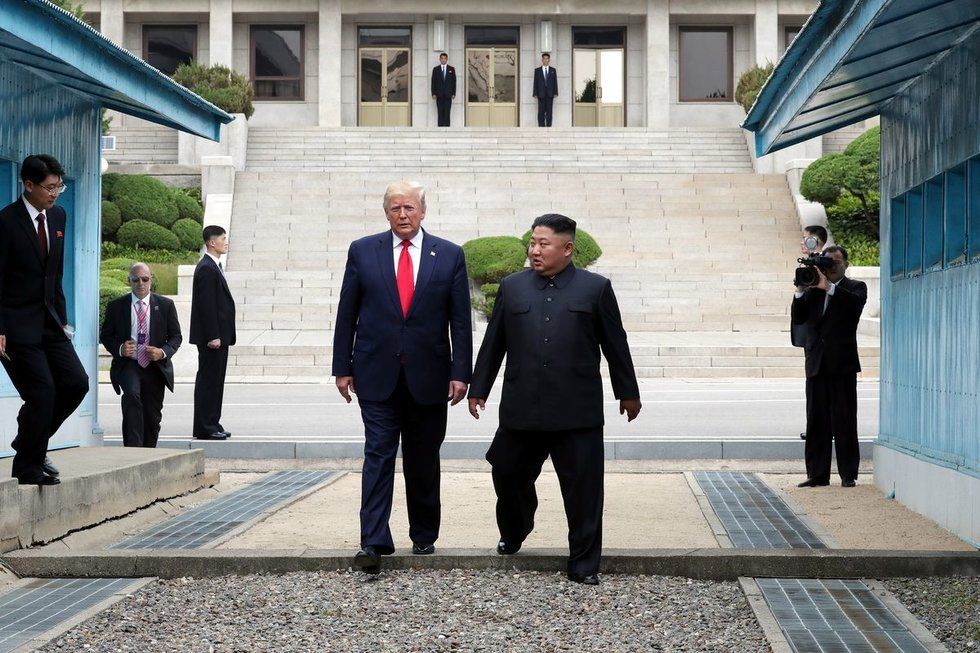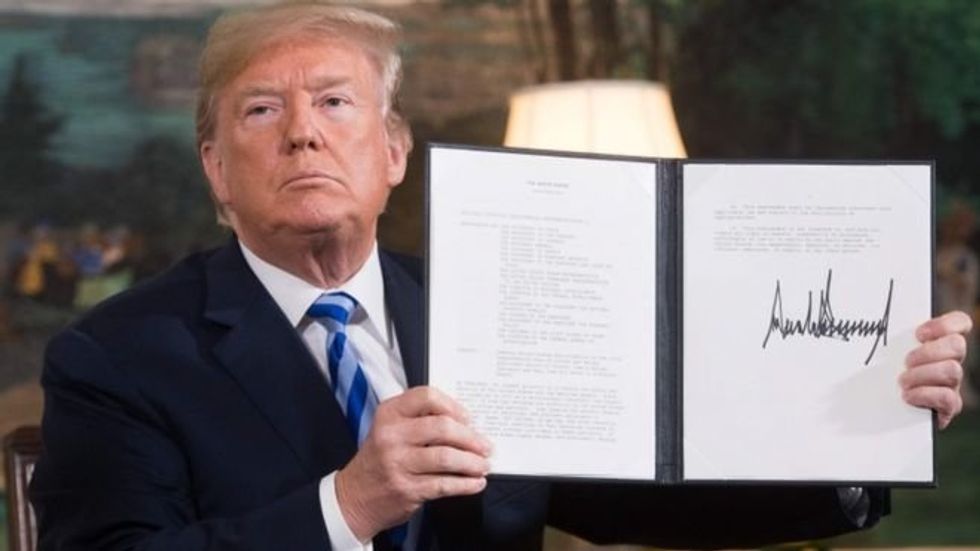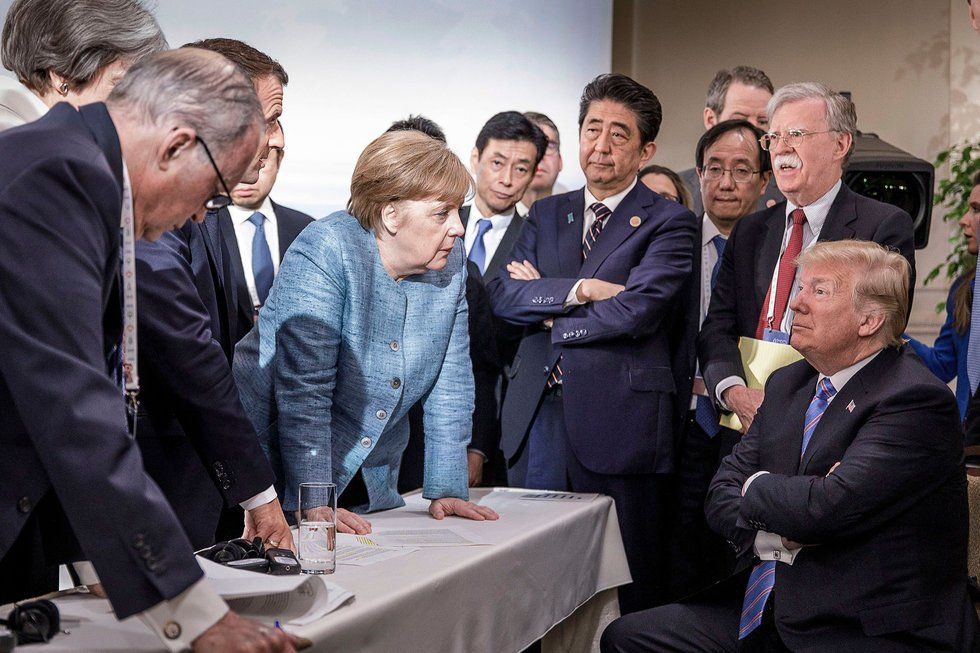President Donald Trump continues to push the envelope on American foreign policy and remains headstrong on his decision making. He lingers on the success of his economy, sets new trends in diplomatic relations and alarms Democrats on national security. The President's latest act was meeting North Korean leader Kim Jong Un in the Demilitarized Zone (DMZ). Trump became the first sitting President to set foot in the DMZ. His courses of action on Iran have our two countries at greater odds than ever before. And he has turned America's back on traditional allies across the world.
President Trump made history when he once again met with Kim Jong Un. The two agreed to resume nuclear talks after negotiations came to a halt earlier this year in February. President Trump has been resilient in bringing the North Korean dictator to the table on denuclearization. His failure to do so thus far has cast shadows of doubt on future negotiations and the administration. No other sitting U.S. President has set foot on North Korean soil. The pressure is on Trump heading into an election year, as he tries to accomplish what appears to be the impossible.
Iran is considered one of the immense external threats to the United States. Tensions are soaring between Washington and the Islamic Republic. The escalation in recent years has the U.S. at a crossroads with Iran and the region of the Middle East. The Middle East has been the focal point of foreign policy for almost eighteen years. It started with Afghanistan, transitioned to Syria, and now heads turn towards Iran. President Trump has largely been blamed by critics for relations to spiral out of control. Now, Iran is determined to obtain nuclear weapons. A world in which Iran has nuclear weapons is threatening to the United States.
Donald Trump's populist rhetoric on foreign policy has forcibly strained relations with chief allies of the United States. Particularly with Europe, the President has strongly spoken out about our allies since the campaign. He has called out NATO members, as well as heads of state in Europe. European leaders have also spoken about their opposition to the U.S. President. In November, French President Emmanuel Macron spoke about the future of Europe and the necessity of protecting Europe from external forces such as Donald Trump. Trump's rhetoric has had ripple effects in diplomacy and international relations. A new and less confrontational president would help restore international cooperation.
A common talking point among Democratic candidates for President is critiquing Trump on national security and foreign policy. During the first two nights of the Democratic Presidential Debate, Donald Trump was a hot topic when it came to foreign policy. Many of the Democrats running for president have been immensely critical of the Trump administration. Senator Klobuchar, for instance, has often taken to Twitter to squander the President and his foreign policy. Foreign policy is always popular in the world of politics. Whoever comes out on top in 2020 must revamp American foreign policy.

















